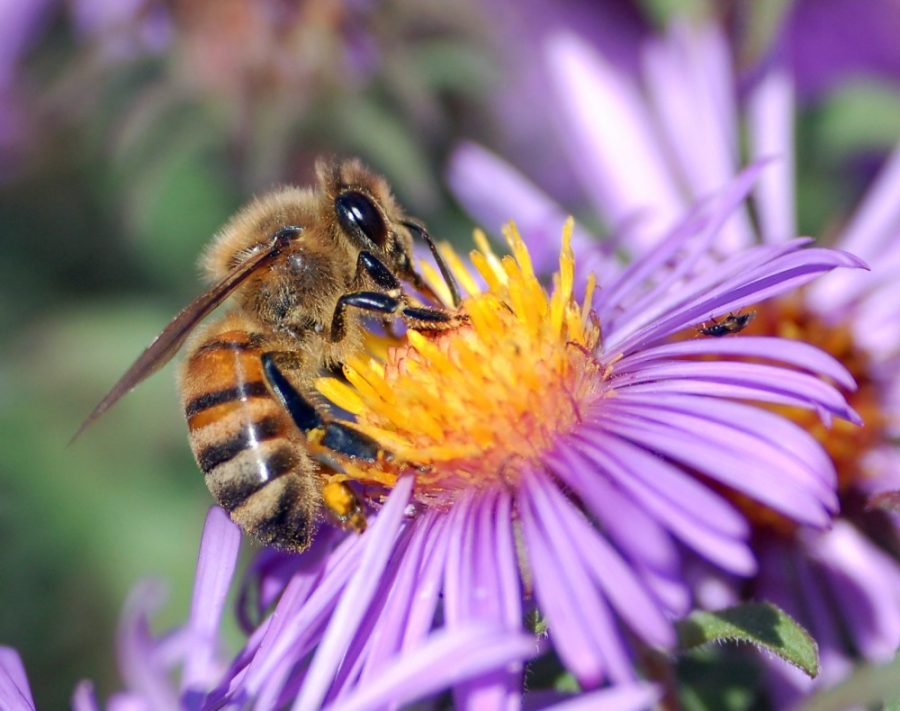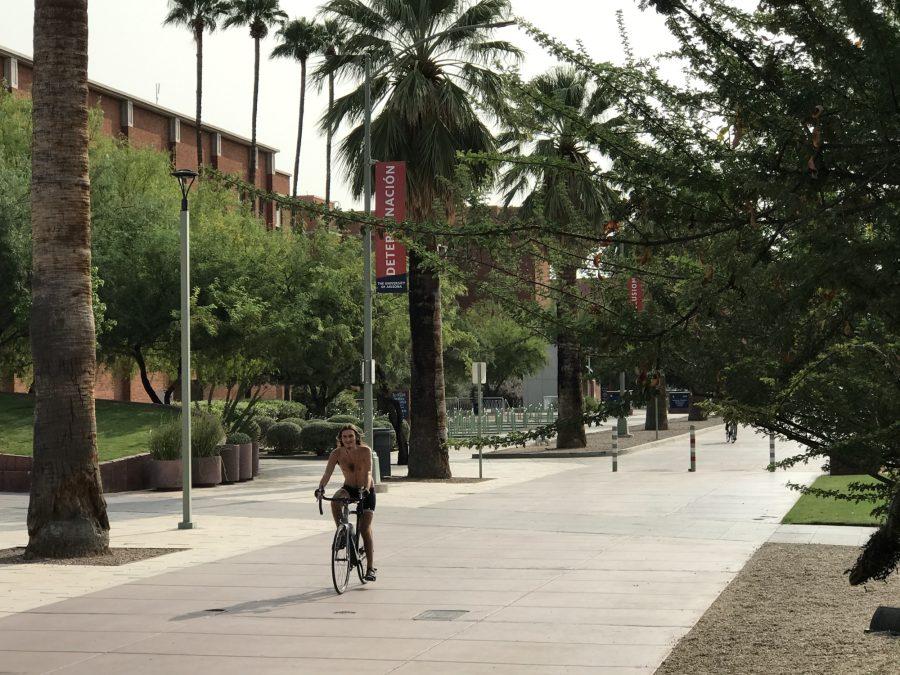This planet feeds you, clothes you and provides a platform for you to accomplish your goals. While we may be celebrating Earth Day Saturday, every day should be a celebration of the planet that sustains us. With that in mind, here are 10 things you can do every day for the rest of the year to give back to the Earth:
1. Miss out on the merch
Thanks to our consumer-driven society, there’s sure to be a flood of Earth Day-inspired merchandise hitting the stores this weekend. But before you begin trying to decide which items to add to your shopping cart, consider another option: not buying anything at all.
According to Anita Bhappu, an associate professor of family and consumer sciences, one of the best choices you can make on behalf of the planet is to put a little more thought into your purchasing decisions.
“To buy a t-shirt in support of Earth Day and then essentially not wear it is the worst thing you could do on Earth Day,” Bhappu said.
2. Show up
One way to show your support for the Earth this weekend is to attend one of the various science events happening around the city, said Stephen Buchmann, an adjunct professor in entomology and ecology and evolutionary biology.
You could participate in the March for Science Rally at Presidio Park Saturday morning, which will include local performances and displays from 20 local science organizations.

You could also head over to Biosphere 2 for the ultimate Earth Day experience, which will include panel discussions, science activities and a concert.
3. Practice ‘conscious consumption’
Before you buy something, consider whether you really need it, Bhappu said.
“Especially in our world, in the U.S., we are primed to believe and we’ve internalized this belief that the way in which we need to do anything is related to buying,” Bhappu said.
When you do choose to buy something, appreciate your purchase and use it as much as you can. Bhappu refers to this practice of mindful purchasing as ‘conscious consumption’.
4. Bee sustainable
In 2016, Arizona produced 1,242,000 pounds of honey, according to a survey conducted by the National Agricultural Statistics Service. Bees are responsible for pollenating the beautiful Palo Verdes, prickly pear cactus and other desert plants surrounding us.
Give the bees and the planet a hand by building a “Bee Condo,” Buchmann said. Building a home for your neighborhood pollinators is easy—simply drill rows of holes about 7-8mm in diameter and 3-5 inches deep in a piece of wood.
Then, hang that wood in a dead tree or nail it to your house, Buchmann said. He suggested the best time to hang your bee condo is when the Palo Verdes are in bloom.
If you’re more of the gardening type, try planting bunches of wildflowers in a pollinator garden, Buchmann said. Salvia, mint and bee balm are all great attractants for bees.
RELATED: Bird is the word: Tucson’s Year of the Hummingbird
5. Reduce, reuse and recycle
We’ve all heard these three magic words before. What many people don’t know is just what they should be recycling, said physiology and molecular & cellular biology undergraduate Dien Truong, chair of the water committee in Students for Sustainability.
One way to know if your trash is recyclable is to check for the recycling triangle on the container, Truong said.
Another tip is to reuse common objects, such as plastic grocery bags or Styrofoam takeout containers, Truong said. This can have a huge impact on the amount of trash sent to a landfill.
“The best thing anyone can do to have a better impact on the environment is to just reduce usage,” Truong said.
6. Calculate the value of your products
Instead of spending on high-price products for special occasions, try spending a little more on products you’re actually going to use more than once a year, Bhappu said. Not only will it save you money, it’s cheaper for the planet and less wasteful.
If you’re looking for a good indicator of a product’s value, Bhappu has a mathematical equation for you.
“[I] take the price of the good and divide it by the number of times I expect to use it, and that’s where you get value,” Bhappu said.
RELATED: Desert microorganisms, weather endangered by climate change
7. Connect with your community
One of the best ways to support your planet is to start with the people, animals and plants closest to you. Buchmann offered three simple ways to integrate science into your daily life:

First, check out one of the citizen science groups nearby, such as the National Phenology Network, the Desert Museum or Tumamoc Hill. These groups allow people to have first-hand experiences in assisting with data collection and census recording.
Second, try a new way of getting to school in the morning. Go easy on the environment and walk, bike or take public transportation.
Third, you can write an article for your local news outlets on the topic of science, conservation or local environmental issues, Buchmann said.
8. Support a cause
“Earth Day isn’t just about the planet, it’s about the creatures on the planet, people and other living beings,” Bhappu said.
If you’re passionate about animal rights or labor laws, consider connecting with an organization that reflects your beliefs.
9. Plan ahead
How often do you buy groceries you never eat? Food that gets thrown out eventually ends up in a landfill, where it breaks down to produce methane and carbon dioxide, Truong said.
This means increased greenhouse gas emissions and faster global warming.
One easy way to combat this is to plan ahead when you go grocery shopping and only buy those products you know you’re going to consume, Truong said. Not only is this a smarter choice for the health of the planet, it will help you save money, too.
10. Set a goal
If you’ve finished reading this article and haven’t decided to make a change or try something new, now would be a good time.
“There are actually lots of tools out there today to help you be that consumer you want to be,” Bhappu said. “But it starts by understanding that in your role as an active consumer, you have an impact every day on the planet.”
So put down the paper, close the browser and go make every day a celebration of our planet.
Follow Hannah on Twitter.















